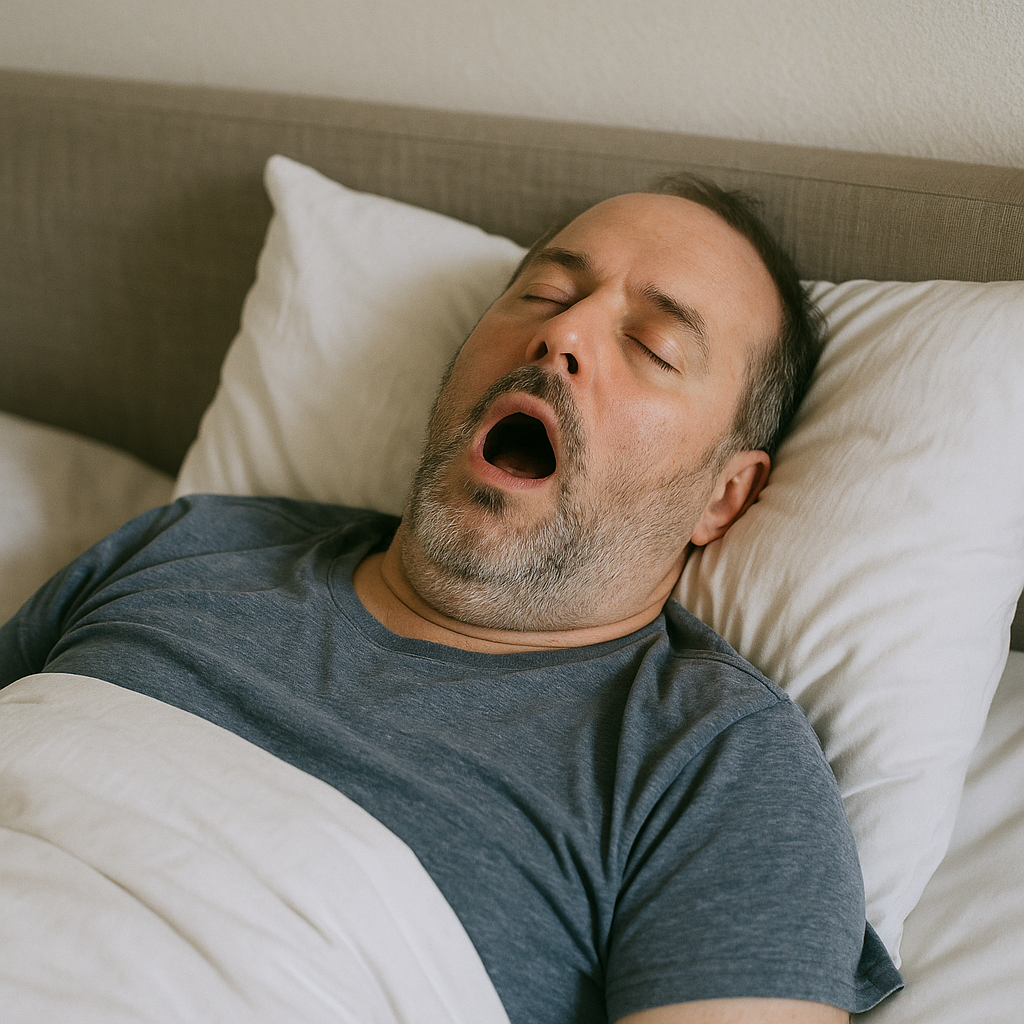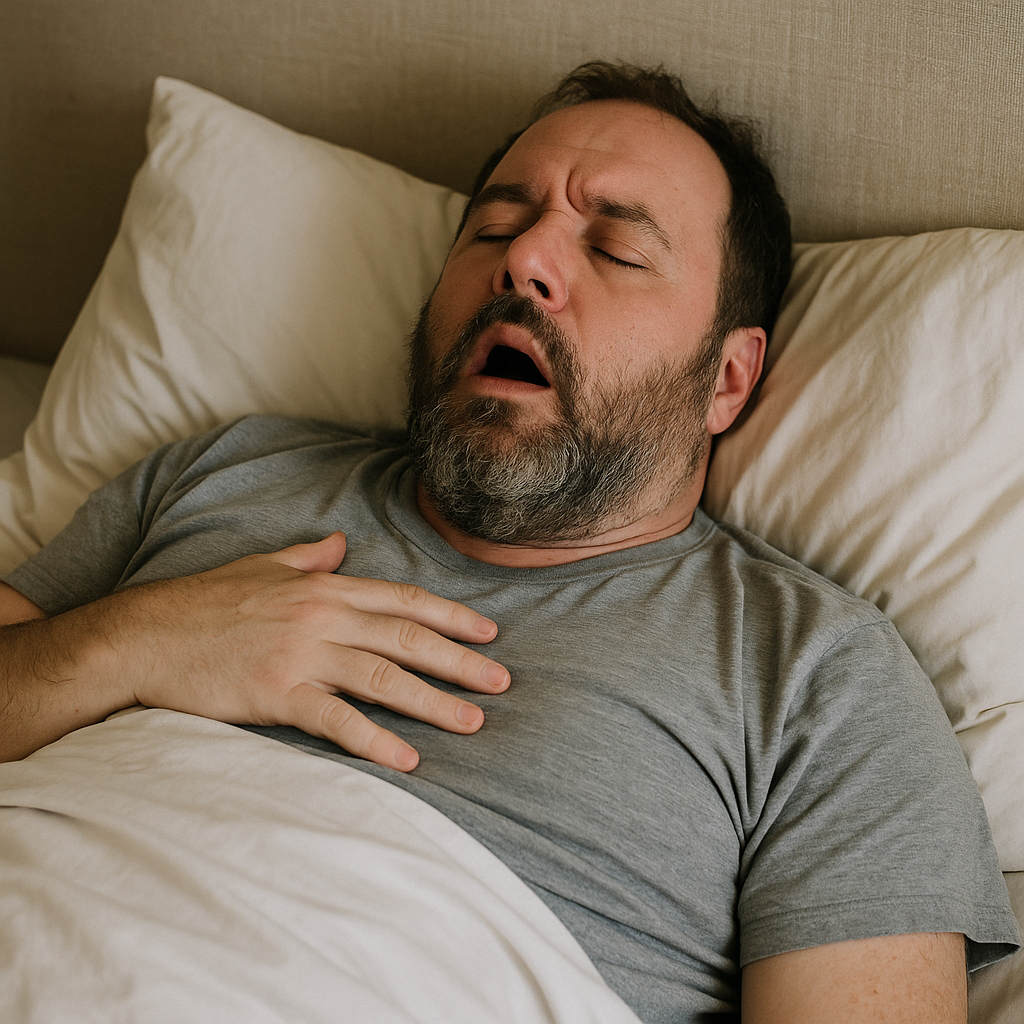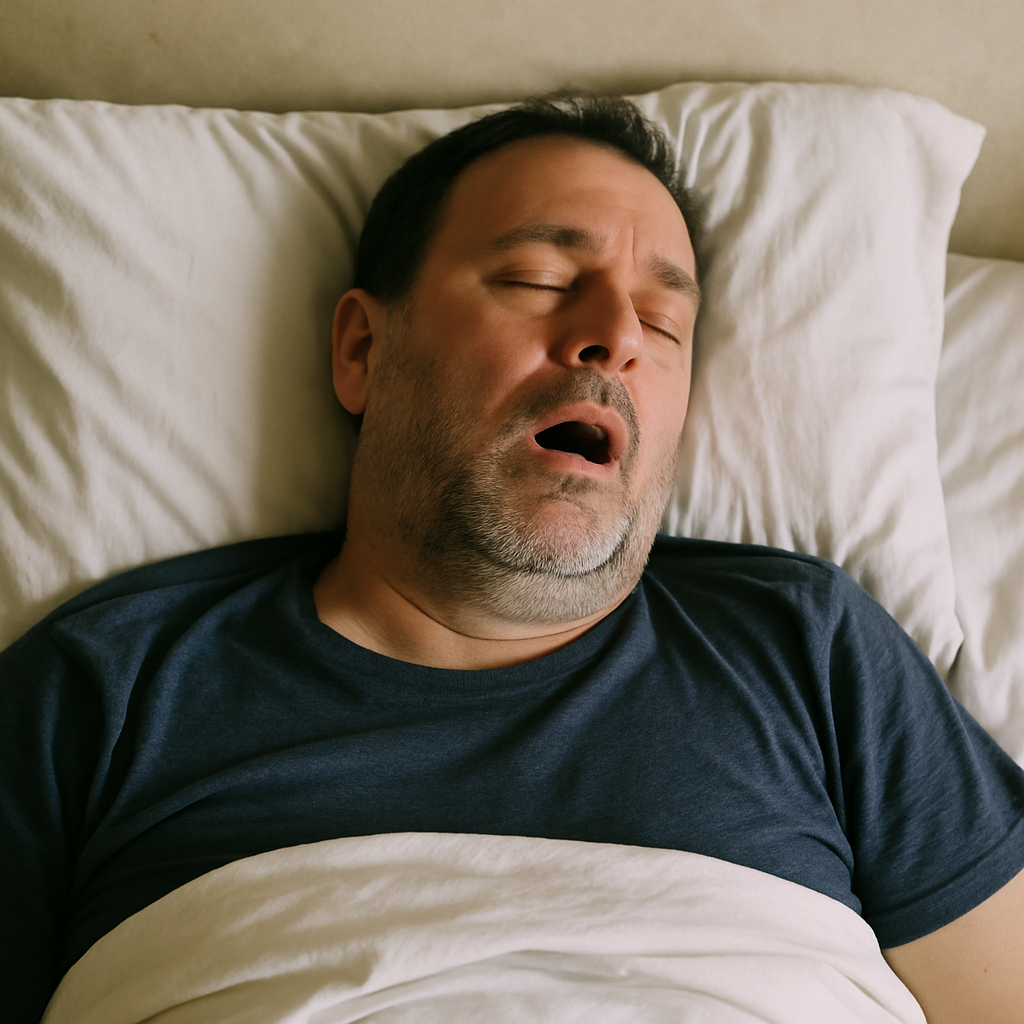Can Sleep Apnea Kill You? The Risks and Ayurvedic Perspective

It’s 2:45 a.m. and you wake up gasping — again. Your partner tells you that you’ve been snoring louder lately. You laugh it off... but should you?
Can sleep apnea kill you? It’s a serious question — and the answer might be more alarming than most people realize. In fact, sleep apnea can kill you if left untreated. We're not trying to be dramatic; the consequences of ignoring this condition range from chronic fatigue to heart disease — and in some cases, sleep apnea death.
So, yes, while it might seem like just annoying snoring or daytime drowsiness, the reality is: sleep apnea kill you if your body keeps struggling to breathe while you're asleep night after night. In this article, we’ll explore how and why — plus we’ll look at how Ayurveda, the ancient healing system of India, offers holistic support to reduce the risk of death from sleep apnea.
Let’s break it down.

What Is Sleep Apnea and How It Affects the Body
Sleep apnea is a disorder in which breathing repeatedly stops and starts during sleep. The most common form, obstructive sleep apnea (OSA), happens when throat muscles intermittently relax and block the airway. The brain wakes the body up briefly to restore airflow — often without you even knowing.
Sounds harmless? It’s not.
These breathing interruptions can occur hundreds of times a night. Your body is literally fighting for air, over and over. And the lack of oxygen puts intense strain on your heart, brain, and other organs. People with untreated sleep apnea often wake up feeling exhausted, irritable, and mentally foggy — even after “sleeping” for 7-8 hours.
And over time, the damage adds up.

Can Sleep Apnea Kill You?
This is where the topic gets real.
Let’s just say it plainly: sleep apnea can kill you. Or rather, the complications from untreated apnea can lead to life-threatening consequences. And yes, people can die from sleep apnea in their sleep — though it’s not always reported that way on death certificates.
Why? Because the final straw might be a stroke or a heart attack. But behind that is often the chronic stress and oxygen deprivation caused by severe, unmanaged apnea.
Sleep Apnea and Cardiovascular Complications
The heart doesn’t like being oxygen-starved.
People with moderate to severe sleep apnea are at significantly higher risk of high blood pressure, irregular heartbeat (arrhythmia), and congestive heart failure. Over time, these conditions can become fatal. So if you've been wondering whether sleep apnea kill you, the link to cardiovascular issues alone makes the answer a strong yes.
In fact, studies show people with untreated sleep apnea are two to three times more likely to suffer a stroke or die from heart disease.
Sleep Apnea Death Statistics and Medical View
While exact numbers vary, estimates suggest that sleep apnea death plays a role in tens of thousands of fatalities per year in the U.S. alone. The tricky part is many of these deaths are coded under related conditions, like sudden cardiac arrest or stroke. But apnea lurks behind the scenes.
It's sobering to consider that someone might die from sleep apnea without ever being formally diagnosed. Many people live with it for years, dismissing the snoring, the fatigue, the brain fog. The signs are there, but they go unnoticed... until it’s too late.

Ayurvedic Treatment to Prevent Sleep Apnea Complications
While modern medicine offers CPAP machines and surgical options, many people are turning to holistic and natural approaches for managing chronic conditions — including sleep apnea. Ayurveda, the ancient Indian system of medicine, views sleep as one of the three pillars of health (alongside diet and lifestyle). That’s big.
From an Ayurvedic lens, sleep apnea is often linked to an imbalance in kapha and vata doshas. Blocked channels (srotas), poor digestion, and weak respiratory strength may all contribute to the condition. Thankfully, there are ancient tools — still effective today — that can help reduce the burden on your body and support better, safer sleep.
Breathing Practices and Cleansing Herbs
Pranayama, or yogic breathing, is more than just deep inhales. It can retrain the nervous system, strengthen lung capacity, and reduce inflammation. For someone living with sleep apnea, daily practice of alternate nostril breathing (nadi shodhana), bhramari (humming bee breath), and ujjayi can help soothe erratic breath patterns and restore calm to the body at night.
Ayurveda also leans heavily on cleansing herbs that support the respiratory tract and remove toxins. Pippali (long pepper), vasaka (malabar nut), haritaki, and licorice root are classic herbs used to open airways, clear excess mucus, and support lung function. These herbs, often found in formulations like Sitopaladi Churna, may not directly “cure” sleep apnea, but they can improve overall breathing — and that matters.
If you’re wondering, can these really help if sleep apnea can kill you? — they don’t replace medical intervention, but they can complement it.
Lifestyle, Weight Management, and Nasya Therapy
Weight gain is a major risk factor in sleep apnea — particularly obstructive sleep apnea. Ayurveda places great importance on ahara (diet) and vihara (lifestyle) for maintaining a healthy body composition. Eating lighter dinners, avoiding heavy dairy and fried foods at night, and finishing meals 3 hours before bed can dramatically improve sleep quality.
And here’s something you might not have heard of: Nasya therapy. This involves administering herbal oils through the nasal passage. Sounds odd? Maybe. But it's been practiced for thousands of years. Nasya helps to lubricate the sinuses, reduce inflammation, and open the breathing channels. Many Ayurvedic practitioners recommend a light nasya treatment before bed for individuals who snore or struggle with nighttime breathing.
By combining these strategies, individuals not only sleep better — but possibly also avoid the dire risks of sleep apnea death symptoms that can sneak up unnoticed.
Creating a Sleep-Supportive Routine for Longevity
Ayurveda isn’t just about pills and powders. It’s a lifestyle. A good night’s sleep begins before your head hits the pillow.
-
Go to bed by 10 p.m., when the body's natural melatonin levels begin to rise.
-
Avoid screens and loud noises an hour before sleep (yes, even that addictive true crime podcast).
-
Drink calming teas like chamomile or tulsi.
-
Practice self-massage with warm sesame oil to calm the nervous system.
These might sound simple, but they add up. When combined with breathing practices, diet, herbs, and modern support tools, you create a multi-layered defense against the worst-case scenario: sleep apnea die in sleep.
Conclusion
So — can sleep apnea kill you?
Yes, it absolutely can. Not in the horror-movie-jump-scare kind of way, but in the quiet, creeping, long-term-damage kind of way. Sleep apnea kill you by slowly wearing down your cardiovascular system, starving your body of oxygen, and increasing your risk of stroke, heart failure, and yes, even sudden death in sleep.
But here's the hopeful part: it doesn’t have to end that way.
By recognizing the signs early, taking a combined approach of modern diagnostics and ancient healing (like Ayurveda), and committing to real lifestyle shifts, you can dramatically lower the risks. Sleep apnea death symptoms don't have to be your story — but you do have to act. Whether it’s finally getting that sleep study, losing that stubborn 15 pounds, or just shutting off your phone before bed — it all matters.
Because here's the truth: death from sleep apnea is preventable in many, many cases.
Share this article with someone who snores, feels tired all the time, or thinks sleep apnea is “no big deal.” You might just save a life.
FAQs
What is the life expectancy for sleep apnea?
If untreated, sleep apnea can shorten your lifespan by 8 to 10 years or more due to its link to heart disease, stroke, diabetes, and high blood pressure. With proper treatment, however, people with sleep apnea can live long, healthy lives. The key is early diagnosis and consistent management — don’t ignore it.
What is the best position for sleep apnea?
Sleeping on your side is generally best, especially the left side. Back-sleeping tends to worsen symptoms because the tongue and soft tissues can fall back, blocking the airway. Some people even use positional therapy devices or body pillows to help train side-sleeping. If you’re unsure, try recording yourself sleeping (we know, kinda weird) to see what triggers more apneas.
Can surgery fix sleep apnea?
In some cases, yes. Procedures like UPPP (uvulopalatopharyngoplasty), tonsillectomy, or jaw advancement can help by removing or tightening tissues that obstruct the airway. However, surgery isn't a cure-all and may not work for everyone. It’s usually considered after other treatments, like CPAP or lifestyle changes, haven't worked or aren’t tolerated.
Got any more questions?
Ask Ayurvedic doctor a question and get a consultation online on the problem of your concern in a free or paid mode.
More than 2,000 experienced doctors work and wait for your questions on our site and help users to solve their health problems every day.

